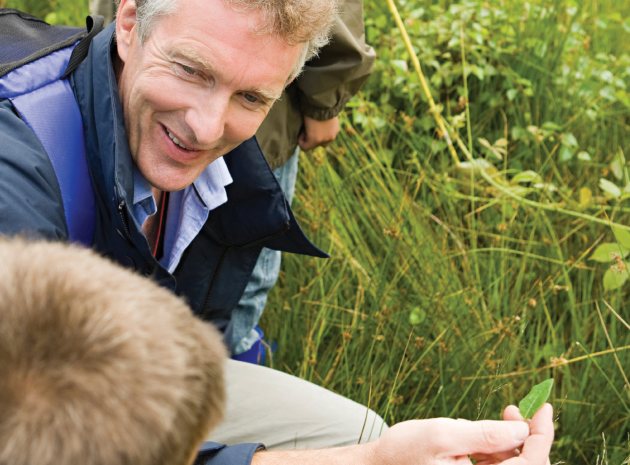“Geography wants to take children outside the school and into the streets and fields; it wants to take the keyboard tappers out of their gloomy offices and into the rain or sunshine.”
There’s more to fieldwork than a chance for students to get their hands – and boots – muddy, argues Alan Kinder…
Alistair Bonnett’s description of geography (above) is one of my favourites, because it evokes that vital ingredient in every child’s education – a spirit of adventure. It also reminds us that this subject owes its existence within the modern school curriculum to Victorian and earlier explorers as much as to academic thinkers. Today, as many young people lead increasingly sedentary lives in which searching online sometimes replaces first-hand discovery of the world, the significance of educational fieldwork activities towards their personal and intellectual development may be greater than ever. Fieldwork can be defined as any part of the curriculum that involves leaving the classroom and learning though first-hand experience. The personal and social benefits are well documented; most obviously, well-designed fieldwork provides enjoyment and inspiration for students, and is frequently cited as one of the most memorable of school experiences. However, it also provides opportunities for developing practical, group work and leadership skills and can prompt a step-change in a student’s relationship with his/her teacher or peers. It can even improve dispositions towards learning, by increasing independence, confidence and the ability to deal with risk and uncertainty. Some fieldwork approaches deliberately nurture creativity and care for ‘the environment’ (by which I mean the human as well as natural world), impacts which go beyond schooling or education.
In a recent speech to celebrate the 70th anniversary of the founding of the Field Studies Council, Michael Gove proved that he really ‘gets’ some of this. He described the classroom as a ‘jumping off point not an end point for education’, talked fondly of his own outdoor education experience and praised his old school for recognising that fieldwork shouldn’t be ‘tacked on at the end of the summer but integrated properly into every subject that we were learning’. Nor do ministers appear to be paying only lip-service to this idea: the new National Curriculum contains a renewed commitment to fieldwork, for example with an explicit requirement to include it at every key stage in geography.
Despite the supportive political rhetoric, the recognition of fieldwork within qualifications has emerged recently as a key concern for science teachers and geographers. In fact, the professional issues underpinning this debate are relevant to many others, particularly those involved in practical subjects or where internal assessment counts towards final examination grades. As the Department for Education (DfE) and the exams regulator Ofqual push ever-more forcefully towards traditional, written terminal examinations as the only trusted means of assessing students, the value and validity of practical tasks, work created during a course and work assessed by teachers comes under threat. Consequently, fieldwork has become embroiled in an urgent debate about its position in reformed qualifications from 2015. The debate hinges on the contested viewpoint that fieldwork (and practical work more broadly) may be ‘good for learning, but not good for assessment’. In science, therefore, current proposals may mean that science practical activities will no longer count towards examination grades. For geography GCSE, the Department for Education (DfE) have proposed that a letter, signed by the head teacher and declaring that the candidates from a school have undertaken some fieldwork, will safeguard quality experiences for students, whilst Ofqual supports the use of fieldwork questions within terminal examinations. There are at least two fundamental objections to this approach. First and foremost is the fact that fieldwork promotes unique academic gains for students. I would argue that the act of analysing and drawing conclusions from fieldwork data collected by the student themselves allows application of knowledge and understanding of theory to the particular circumstances of a real-world location.
This ‘rich process of learning’, which takes place before, during and after high-quality fieldwork, invites students to:
- develop their investigative skills in distinctive and important ways, teaching them to become geographers (or scientists), rather than just teaching them about the subject;
- experience the ‘messy’ world by observing phenomena in context and begin to make sense of this complexity, initially through careful observation and primary data collection
- appreciate that the ‘theoretical’ world of the textbook and their own investigative research is partial and limited. Such critical evaluation provides insight into the nature of school subjects like geography and science, both of which are based on particular ways of thinking and knowing.
There are serious difficulties in recognising and rewarding these aspects of learning within traditional terminal examinations. The process of enquiry underpinning fieldwork involves students posing questions, gathering and processing data, sifting through the evidence and creating detailed analysis. This tends to be an iterative process: in order to draw conclusions from fieldwork, geography students frequently revisit their data, may adjust their enquiry focus, process additional data or follow additional lines of investigation. Delaying the assessment of a fieldwork investigation until the end of a two year course interrupts this and introduces an artificial barrier between investigation and conclusion. Denying candidates access to their own fieldwork notes and evidence in ‘closed-book’ exams also limits their opportunities for making evidence-based references to the complex world we wish them to understand. Fieldwork exam questions, Ofqual’s preferred approach, tend to be formulaic because examiners are unable to design tasks which allow students to marshal primary evidence, draw on this to reach unique insights and critically reflect upon their own investigation. Instead, exams demand recall of common fieldwork techniques and invite generic evaluations of aspects such as sampling. Some exams require candidates to respond to ‘dummy’ data, which lack the unique context of primary data collected in a location which students experienced first-hand.
The second objection involves the close interrelationship between curriculum, teaching and assessment in schools. It is perfectly rational for teachers to prioritise those parts of the curriculum which count towards final qualification grades. If we rely only on terminal written examinations, we are more likely to teach our students examination strategies and teach in a way which prepares them for the demands of the examination. Conversely, if we include the outcomes of investigative fieldwork within the assessment framework for a qualification, we provide a valuable opportunity to professionally develop teachers – they will provide students with more and better fieldwork opportunities, give diagnostic advice and be concerned with their own professional knowledge and skills.
So the potential impacts on the quality and quantity of fieldwork in the future are profound. If the DfE relies on a signed letter to ‘ensure’ fieldwork takes place, the rationale for extended or frequent field visits at GCSE will be removed. If exam questions are added to the equation, then we are likely to see more drilling of fieldwork techniques (for which the school grounds are just as good as an unfamiliar location) and rote learning of the knowledge and understanding which may come up in the exam. This is an outcome that the Geographical Association (GA) is working vigorously to avoid. I can think of no better way to finish this article than by quoting a teacher who felt moved recently to write to Ofqual: “We are in great danger of valuing only what we feel is easy to measure, not working out how to measure what is truly valuable.”











“Geography wants to take children outside the school and into the streets and fields; it wants to take the keyboard tappers out of their gloomy offices and into the rain or sunshine.”